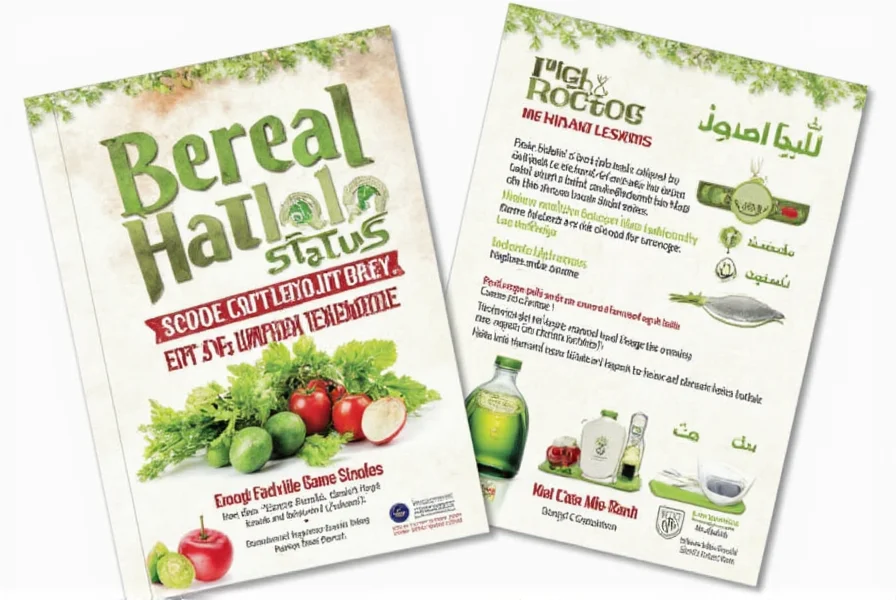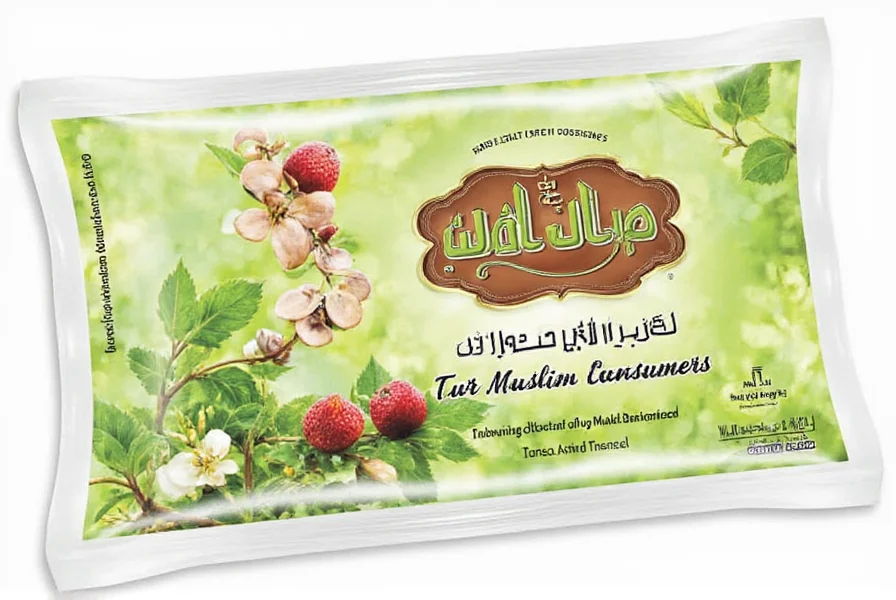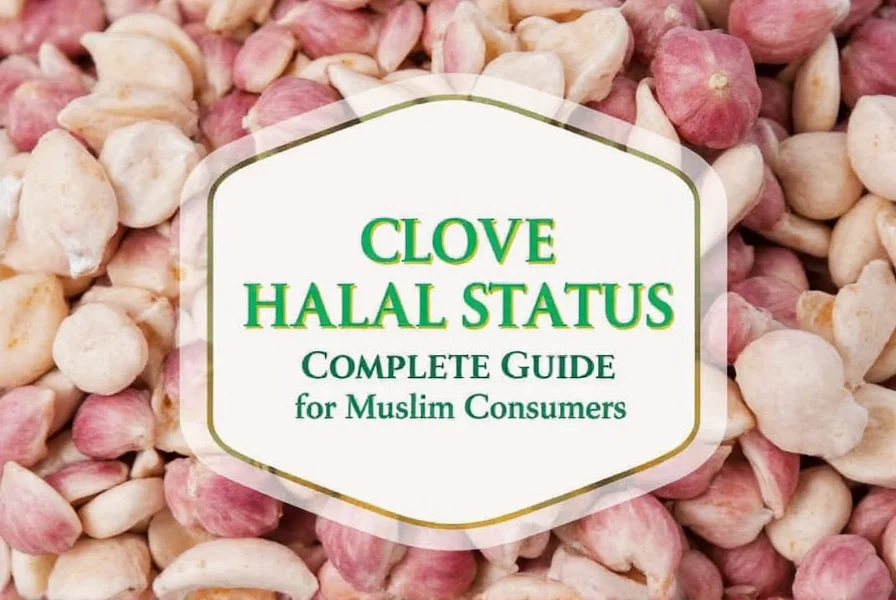Cloves represent one of the most straightforward cases in halal food assessment. These aromatic flower buds have been used for centuries in Muslim-majority regions for culinary, medicinal, and religious purposes without controversy. The Islamic Fiqh Academy of the Organization of Islamic Cooperation has never issued any prohibition regarding cloves, confirming their unambiguous halal status.
Understanding Cloves in Islamic Dietary Law
Islamic dietary regulations primarily focus on avoiding substances explicitly forbidden in the Quran and Sunnah, such as pork, alcohol, and animals not slaughtered according to Islamic guidelines. Cloves, as a plant-based spice, fall outside these prohibitions. The Prophet Muhammad (peace be upon him) reportedly used various spices in his diet, establishing a precedent for their permissibility.
When examining clove halal certification considerations, the primary concern isn't the clove itself but potential processing methods or additives. Pure, unadulterated cloves require no special halal certification as they're inherently permissible. However, processed clove products may need verification:
| Clove Product Type | Halal Status | Special Considerations |
|---|---|---|
| Whole dried cloves | Halal | No certification needed |
| Ground cloves | Halal | Verify no non-halal additives |
| Clove essential oil | Conditionally halal | Must confirm alcohol-free extraction |
| Clove cigarettes | Haram | Tobacco prohibition applies |
Addressing Common Misconceptions About Cloves
Some consumers express concern about is clove halal for cooking questions, mistakenly believing certain spices might contain hidden haram ingredients. This confusion often stems from:
- Misunderstanding of cross-contamination risks in processing facilities
- Confusion between cloves and clove cigarettes (kreteks), which contain tobacco
- Concerns about alcohol-based extraction in clove oil products
Reputable Islamic scholars consistently affirm that pure cloves pose no halal concerns. The European Council for Fatwa and Research states: "Natural spices like cloves, cinnamon, and cardamom are inherently halal unless mixed with prohibited substances or processed using haram methods."

Culinary Applications of Halal Cloves
Cloves feature prominently in traditional halal cuisine across Muslim cultures. In Middle Eastern cooking, they're essential for:
- Rice dishes like biryani and pilaf
- Meat marinades and stews
- Spice blends such as baharat and ras el hanout
- Beverages like qahwa (Arabic coffee)
When considering clove usage in halal recipes, the primary guideline is ensuring cloves haven't been processed with alcohol or mixed with non-halal ingredients. Most commercial ground cloves contain only 100% pure spice, but checking ingredient labels remains prudent.
Clove Oil and Halal Certification
The most complex clove halal status question involves clove essential oil. Traditional extraction methods using steam distillation produce halal-compliant oil. However, some manufacturers use ethanol-based extraction, creating potential concerns.
Consumers seeking halal certified clove oil should look for:
- Certification from recognized halal authorities
- "Alcohol-free extraction" labeling
- Steam-distilled or cold-pressed production methods

Religious Perspectives on Cloves
Islamic tradition actually encourages the use of cloves for their health benefits. The Prophet Muhammad (peace be upon him) stated: "Whoever eats seven dates in the morning will not be harmed that day by poison or magic" (Bukhari). While this hadith references dates, scholars extend the principle to other beneficial foods and spices.
Many contemporary Islamic scholars, including those at Al-Azhar University, affirm that cloves' medicinal properties align with the Islamic principle of preserving health. When addressing is clove permissible in Islam questions, scholars consistently reference Quran 2:172: "O you who have believed, eat from the good things which We have provided for you..."
Practical Guidance for Consumers
For those navigating clove halal verification in modern food systems, these practical steps ensure compliance:
- Choose whole cloves when possible to avoid processing concerns
- Check ground spice labels for "100% pure" or "no additives" claims
- Verify halal certification for clove oil and extract products
- When dining out, ask about spice preparation methods
- Consult local Islamic authorities for region-specific guidance
Major halal certification bodies like the Halal Food Authority and Islamic Food and Nutrition Council of America consider cloves inherently halal, requiring no special certification for the raw spice. This positions cloves among the most straightforward ingredients in halal dietary practice.
Frequently Asked Questions
Are cloves considered halal in all Islamic schools of thought?
Yes, cloves are universally accepted as halal across all major Islamic jurisprudential schools (Hanafi, Maliki, Shafi'i, Hanbali). No reputable Islamic authority has ever declared cloves haram, as they're natural plant products with no intoxicating or forbidden properties.
Do cloves require halal certification?
Pure, unadulterated cloves do not require halal certification as they're inherently permissible. However, processed clove products like oils, extracts, or spice blends may benefit from certification to verify no haram substances were introduced during manufacturing.
Is clove oil halal for consumption?
Clove oil is halal only if extracted without alcohol. Steam-distilled or cold-pressed clove oil is permissible, while ethanol-extracted varieties are not. Always check for "alcohol-free" labeling or halal certification when purchasing clove oil for consumption.
Can Muslims use cloves in cooking without concern?
Yes, Muslims can freely use whole or ground cloves in cooking. Cloves have been integral to traditional Islamic cuisine for centuries. The only consideration is ensuring processed spice blends containing cloves don't include non-halal ingredients like alcohol-based flavorings.
Are clove cigarettes (kreteks) halal?
No, clove cigarettes are not halal. While cloves themselves are permissible, the tobacco content makes them haram. Islamic authorities universally prohibit tobacco products due to their harmful effects, which contradict Islamic principles of preserving health and avoiding self-harm.











 浙公网安备
33010002000092号
浙公网安备
33010002000092号 浙B2-20120091-4
浙B2-20120091-4